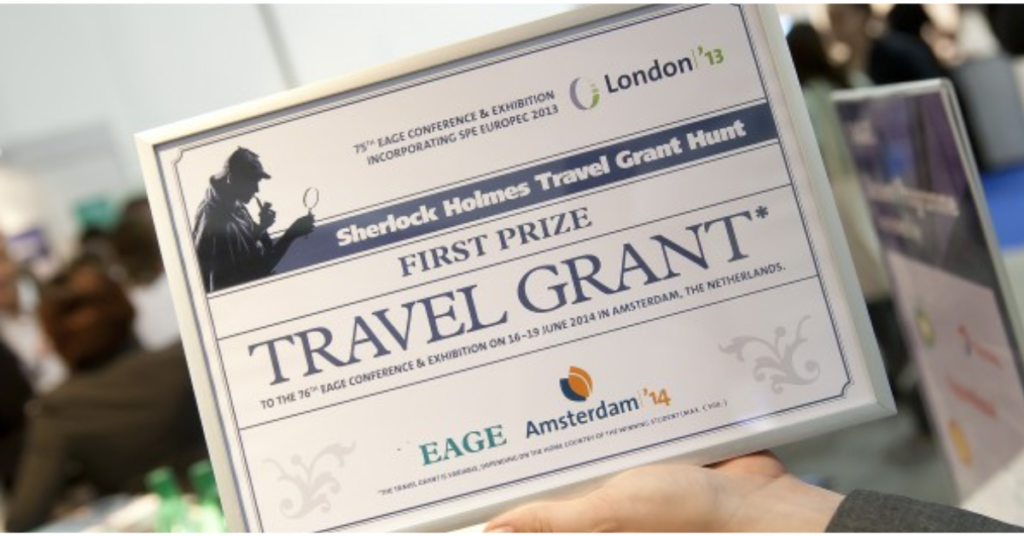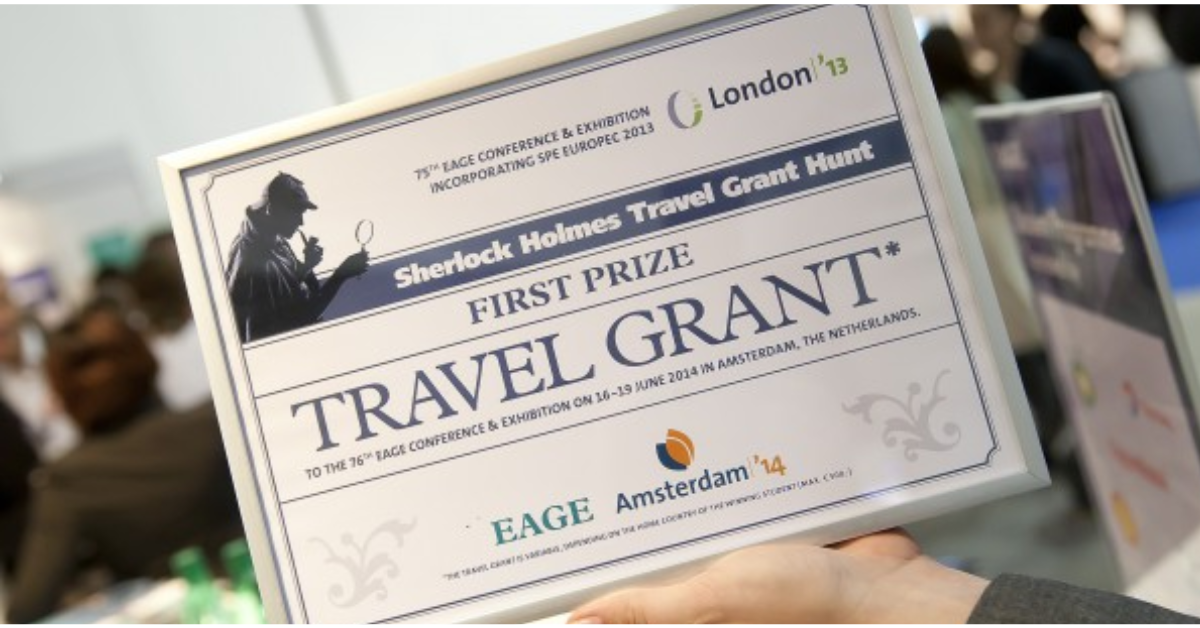Academic conferences are pivotal in fostering collaboration, exchanging ideas, and advancing research across various disciplines. For students and early-career researchers, attending such conferences can be a transformative experience. However, the costs associated with attending—ranging from travel to accommodation and registration fees—can be significant. University conference travel grants provide the financial support necessary for students, researchers, and faculty members to participate in these valuable academic events.

Why University Conference Travel Grants Are Important
Attending academic conferences is an essential part of professional growth for students, faculty, and researchers alike. Conferences provide a platform for individuals to present their research, receive constructive feedback, and engage with experts in their field. This level of engagement helps improve the quality of ongoing work and fosters future collaborations, broadening the academic network.
However, many students, particularly those without personal or external funding, may find it difficult to cover the expenses associated with conference participation. Travel grants offered by universities ensure that financial limitations do not become a barrier to accessing these critical professional development opportunities.
Beyond simply covering costs, these grants represent a university’s commitment to fostering academic growth and promoting the dissemination of research on both national and international platforms.
Who Can Apply for Conference Travel Grants?
Eligibility for conference travel grants varies by university and even by department. Nonetheless, these grants are typically open to a broad spectrum of the academic community:
- Undergraduate Students: While not as common, some universities do offer travel grants to undergraduate students who have been selected to present at a conference, particularly those involved in research or major projects.
- Graduate and Doctoral Students: Graduate students, especially those working on theses or dissertations, are the primary recipients of conference travel grants. Presenting research at conferences is often a requirement for completing graduate-level degrees, making these grants essential for many students.
- Postdoctoral Researchers: Many universities extend travel funding to postdoctoral researchers, who are at a critical stage in their academic careers. These grants allow them to present their work and expand their research networks.
- Faculty Members: In some cases, universities offer travel grants to junior and senior faculty members who are presenting at conferences or attending in a capacity that enhances the institution’s research visibility.
These grants aim to support a wide array of academic participants, ensuring that students and researchers at all levels can access the benefits of attending academic conferences.
Eligibility and Common Criteria for Travel Grants
Though specific criteria vary from institution to institution, certain common requirements are typically found in most travel grant applications:
- Institutional Affiliation: Applicants must be enrolled at or employed by the university offering the grant. This is a basic requirement, as these grants are designed to support the institution’s academic community.
- Conference Presentation: In nearly all cases, travel grants require that the applicant has had their paper, poster, or presentation accepted by the conference. Proof of acceptance is usually a required component of the application.
- Research Relevance: The conference must align with the applicant’s area of study or research. This demonstrates that the event is pertinent to the applicant’s academic or professional development.
- Financial Need or Merit: Some grants prioritize applicants based on financial need, while others focus on academic merit. A clear justification for the financial assistance—whether based on limited personal resources or exceptional research accomplishments—often plays a key role in the selection process.
- Detailed Budget: A comprehensive breakdown of estimated expenses is typically required. This includes travel costs (airfare, train tickets, etc.), accommodation, conference registration fees, and meals. Universities may ask for supporting documents, such as cost estimates or quotes for flights and hotels.
Many grants also place an emphasis on supporting applicants from underrepresented groups or students and researchers whose fields of study typically receive less funding. Some institutions prioritize applications from individuals whose work will bring global attention to the university.
The Application Process for Conference Travel Grants
The application process for university conference travel grants is generally straightforward, but attention to detail is critical. Here’s a typical sequence of steps in the application process:
- Submission of the Application Form: Most universities provide an online form where applicants enter their personal information, details about the conference, and other relevant data such as academic status and affiliation.
- Statement of Purpose: Applicants are usually required to submit a statement outlining why they wish to attend the conference and how it aligns with their research and academic goals. This statement is crucial, as it allows the applicant to demonstrate the potential impact of attending the conference on their academic trajectory.
- Budget Outline: A detailed and transparent budget that covers all projected expenses must be provided. Applicants should be thorough in itemizing costs, ensuring that each category (e.g., airfare, accommodation, registration fees) is realistic and justified.
- Proof of Conference Participation: Many universities require a copy of the conference acceptance letter or email, proving that the applicant’s research has been selected for presentation at the event.
- Letters of Recommendation: Depending on the institution, some applications may require letters of support from faculty advisors or mentors. These letters should vouch for the academic value of the applicant’s research and the importance of their participation in the conference.
Once the application is submitted, it is typically reviewed by a committee of faculty members and administrators who evaluate the academic relevance, budget, and applicant’s merit.
The Benefits of Securing a Conference Travel Grant
Securing a university conference travel grant offers a range of immediate and long-term benefits. These grants not only alleviate financial burdens but also create numerous academic and professional opportunities:
- Networking and Collaboration: Conferences offer unparalleled networking opportunities. Attendees can meet potential collaborators, mentors, and even future employers. For students, this can lead to invaluable professional relationships that may influence future academic endeavors or career prospects.
- Feedback on Research: Presenting research at a conference allows students and researchers to receive feedback from leading experts in their field. This feedback can be instrumental in refining their work and improving their future publications or presentations.
- Career Development: Attending conferences contributes significantly to an individual’s professional development. Whether through improving public speaking skills, learning about new research methodologies, or understanding emerging trends in the field, conferences provide essential experiences that contribute to career growth.
- Institutional Recognition: When students and researchers present at national or international conferences, they enhance their university’s reputation. This contributes to the institution’s academic standing and helps attract future students and faculty members.
Overcoming Common Challenges in Securing Travel Grants
While travel grants offer significant benefits, applicants may face several challenges in the application process:
- Limited Funding: Universities often have limited budgets for travel grants, leading to competitive application processes. Not all eligible applicants will receive funding, and those who do may receive only partial support. Solution: Applicants should explore alternative sources of funding, such as departmental grants, professional associations, or external fellowships. Diversifying potential funding sources increases the likelihood of securing sufficient funds.
- Timing Conflicts: The deadlines for grant applications and conference submissions may not always align. This can create challenges for applicants who need confirmation of conference participation before applying for funding. Solution: Planning ahead is essential. Stay informed about both conference and university deadlines, and submit applications as early as possible to avoid potential delays.
- Competitive Application Process: Given the limited availability of funds, the application process can be highly competitive. Applicants must make their case compelling and ensure that their application stands out. Solution: Focus on submitting a strong application by writing a clear and persuasive statement of purpose. Applicants should emphasize how attending the conference will benefit their research and academic development.
Tips for Writing a Successful Travel Grant Application
When applying for a university conference travel grant, there are several strategies that can help ensure a successful application:
- Be Specific: In your statement of purpose, be clear about why attending the conference is important for your academic or professional goals. Vague or generic applications are less likely to stand out.
- Showcase Impact: Explain how attending the conference will benefit both you and your university. Demonstrating how your participation will bring value to the institution can strengthen your application.
- Provide a Detailed Budget: Make sure your budget is realistic, detailed, and backed by documentation where possible. An under-prepared or unclear budget can reduce your chances of receiving funding.
- Seek Feedback: Before submitting your application, ask a faculty advisor or mentor to review it. A second set of eyes can help catch errors or suggest improvements to make your application more competitive.
Conclusion
University conference travel grants are invaluable resources that enable students and researchers to participate in academic conferences, regardless of their financial situation. These grants open doors to professional development, networking opportunities, and the chance to contribute to the global academic community.
While the application process can be competitive, careful planning, a well-crafted application, and a clear demonstration of the conference’s relevance to your research can increase your chances of success. By investing in travel grants, universities not only support the individual growth of their students and faculty but also enhance their institution’s academic reputation on the world stage.
